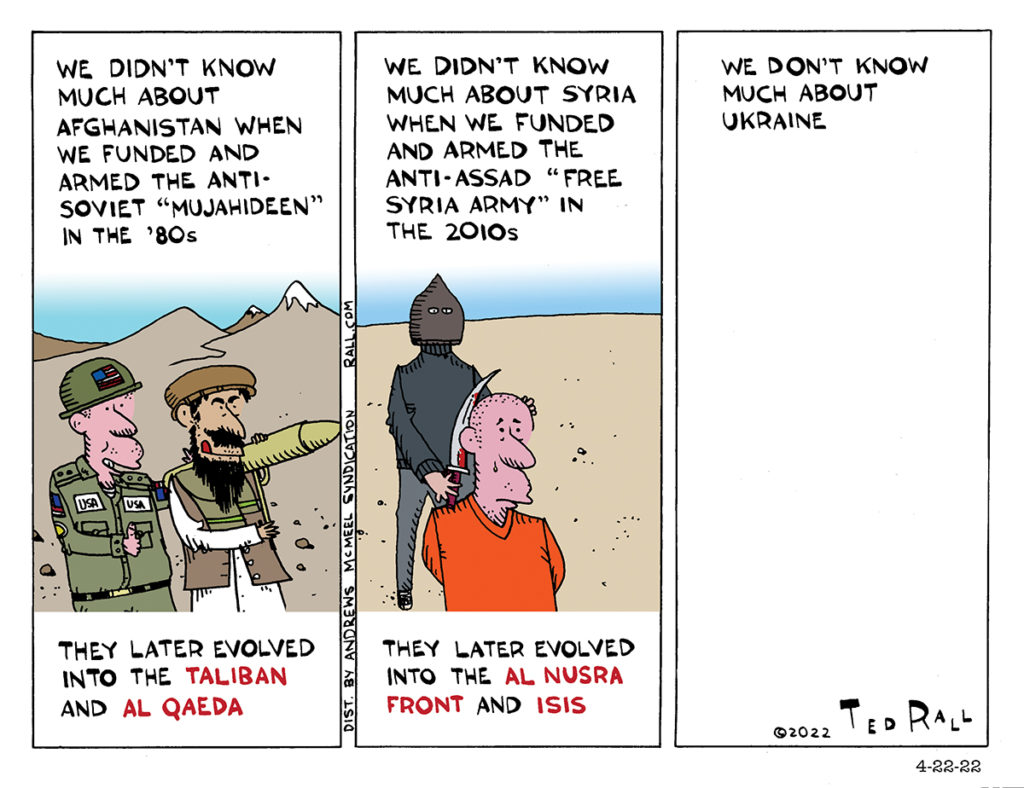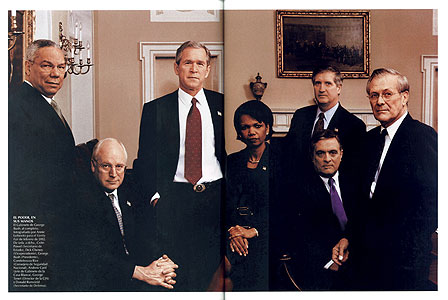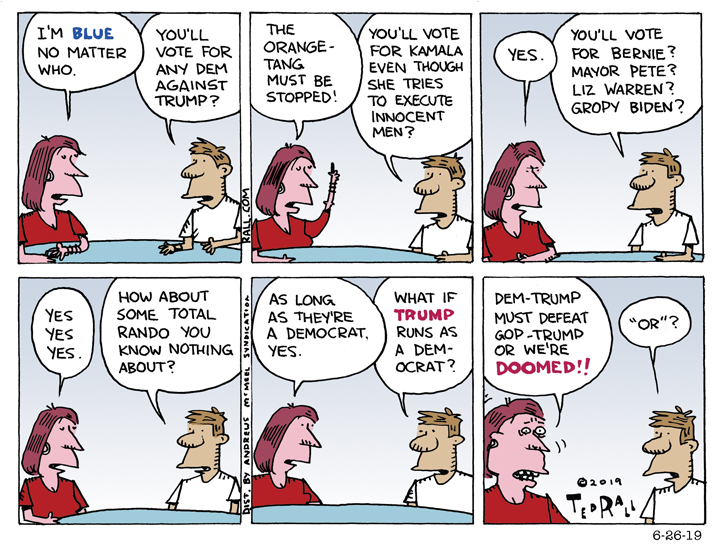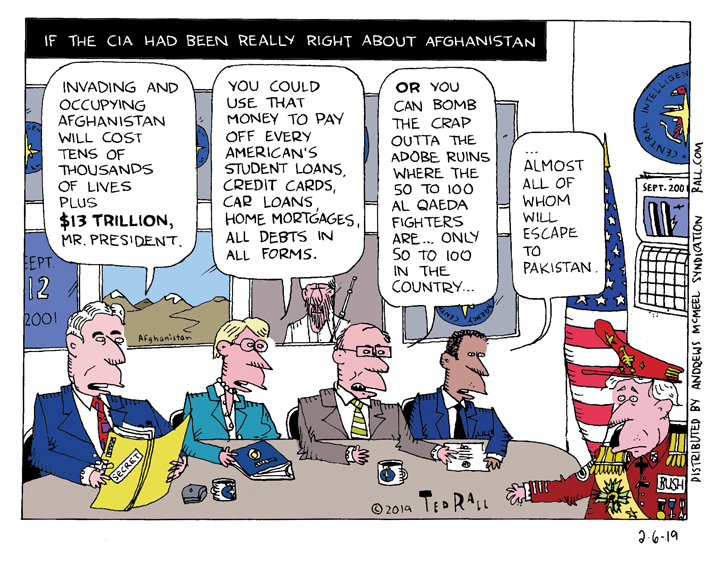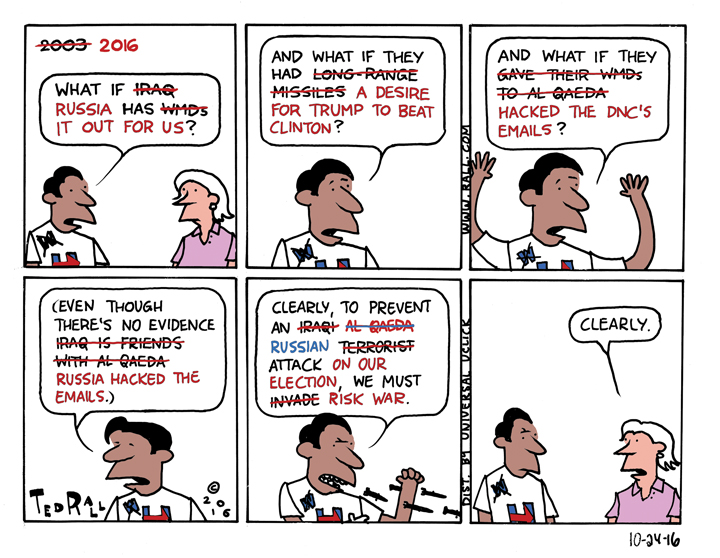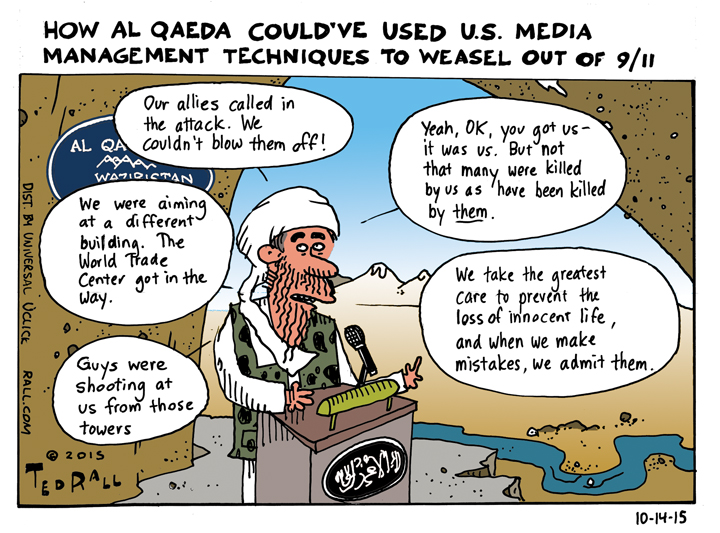Hamas fighters swarmed into Israel from the Occupied Gaza Strip, which has been subjected to a grinding economic blockade since 2007, killing Israeli civilians and soldiers and taking hostages. Political cartoonists Ted Rall (from the Left) and Scott Stantis (from the Right) debate the Israeli-Palestinian conflict and the ramifications of what Israelis are calling their 9/11. Scott, an ardent defender of Israel, tries to find common ground with Ted, who supports Palestine’s independence struggle.
Watch the Video Version of the DMZ America Podcast:
DMZ America Podcast Ep120: Hamas Goes to War with Israel

